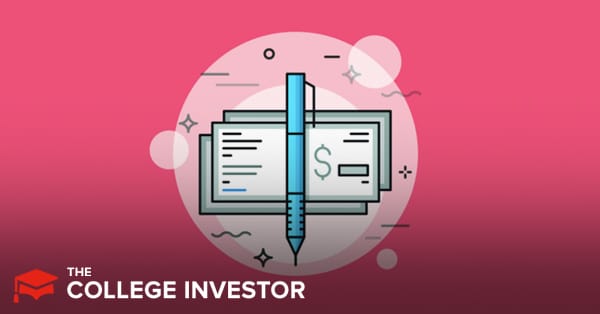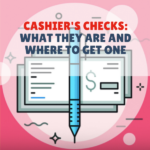
Want to know for sure that a check you send or receive will clear the bank? If so, using a cashier’s check could give the peace of mind you’re looking for.
Cashier’s checks are a form of payment where the payer’s bank guarantees that funds will be available to the person being paid. Unlike a personal check, a legitimate cashier’s check will never bounce.
That makes them more secure than other forms of payments. And they may be required for large purchases (like a home down payment) when you can't use a debit or credit card. This guide explains when to use cashier’s checks and what to expect when you request one from your bank.
What Are Cashier’s Checks?
A cashier’s check, also called a bank check, is a document that looks and acts a lot like a personal check. They both will include the payee’s name and the dollar amount that they're being written for. However, cashier’s checks are different in one respect.
The funds for the check are “guaranteed” funds. That means the moment you request a cashier’s check, your bank removes that dollar amount from your checking account. Because the bank does this, the check is guaranteed to clear. And this offers an extra layer of security for the person receiving the funds.
It’s important to point out that while cashier’s checks are a highly secured form of payment, scams around them do still exist. Most often, fraudsters will send fake checks in the mail and ask for a portion of the money to be sent back via wire transfer.
Often, the victim doesn’t realize that the check is a fake until after they’ve spent or transferred some of the money. To protect yourself, always be careful with accepting a bank check from someone you don’t know. When possible, verify the check with a bank teller before depositing. Or wait several weeks before using the money to make sure that the funds clear.
When Should I Use A Cashier’s Check?
In general, a cashier’s check makes sense when you’re doing a person-to-person transaction that involves a lot of money. Some landlords require their renters to pay with them. You may also be asked to use one if you’re trying to buy a car, boat or RV from a private seller (like your neighbor).
A general contractor might ask for a bank check for a remodel depending on the nature of the transaction. They may also be allowed or required for major purchases such as a house down payment or a car purchase.
In the past, cashier’s checks may have been used to transfer funds from one bank account to another. Today, electronic funds transfer (EFT) or Automated Clearing House (ACH) transfers are usually quicker and safer.
In general, banks and credit unions charge a fee ($5-$20) for a cashier’s check, so you don’t want to use them for every transaction. But the added layer of security makes them a great option for big purchases if using EFT or ACH isn't possible.
Where Can I Get A Cashier’s Check?
The best place to get a cashier’s check is from the credit union or bank that has your checking account. Some banks will allow you to buy one without an account, but the policies on that vary by institution. If a bank allows you to buy one, you’ll need to bring cash to the bank.
Some banks, especially those that don’t have branches, will issue cashier’s checks online. The bank will allow you to specify the address where the check should be sent. Be sure to get this address right! Remember, these checks are guaranteed funds. Banks are unlikely to reissue one without a lot of hassle.
Finally, some banks charge a fee to process cashier's checks, other don't. If having this feature is important to you, then consider your bank choice carefully.
What Do I Need To Get One?
To get a cashier’s check you need all of the following:
- Money: You need either cash or money in your checking account to get a bank check.
- The name of the payee: Banks typically don’t issue blank cashier’s checks. You’ll need a person’s name or business name for the check to be valid.
- Photo ID: Your bank will request a photo ID such as a driver’s license or a passport, so the teller can verify your identity.
- An account (sometimes): The easiest place to get a cashier’s check is from your bank or your credit union. Some banks only issue them to their customers. If you don’t have a bank account, call branches ahead of time to learn the bank’s policy.
How Can I Cash A Cashier’s Check?
It’s easy to deposit a cashier’s check into any savings or checking account. Most banks will allow you to deposit the check via a mobile app, an ATM, or through an in-person deposit. But if your goal is to get cash (physical currency), you’ll need to jump through a few hoops.
You can visit a bank branch where you have a checking account and request to cash the check. Since the funds are guaranteed, the bank will generally allow you to cash the check immediately. You can also cash the check at the issuing bank (for example, if the check came from Wells Fargo, you can cash it at a Wells Fargo branch).
Finally, you can typically cash them at any place that also offers personal check cashing services, such as retail stores or cash checking outlets. Walmart's Money Center is one of the most inexpensive places to cash a check, charging only $4 for cash checks smaller than $1000 or $8 for cash checks larger than $1000. See our full list of the best places to cash a check.
What Are Some Alternatives?
Cashier’s checks aren’t the only way to transfer guaranteed funds to another person. If you don’t think that a bank check is right for you, there are a few different alternatives to consider.
First, you could initiate a wire transfer with your bank instead. Please note, there is a lot of wire transfer fraud, so you need to be very careful about being on the accepting end of wire transfers. For smaller purchases, person-to-person payment apps (like Venmo or PayPal) may make more sense.
Unfortunately, wire transfers or payment apps won’t be a good alternative for you if you don’t have a bank account. In that case, using physical cash may be simplest for small payments while a money order could be a good option when you’re wanting to guarantee larger amounts.

Robert Farrington is America’s Millennial Money Expert® and America’s Student Loan Debt Expert™, and the founder of The College Investor, a personal finance site dedicated to helping millennials escape student loan debt to start investing and building wealth for the future. You can learn more about him on the About Page or on his personal site RobertFarrington.com.
He regularly writes about investing, student loan debt, and general personal finance topics geared toward anyone wanting to earn more, get out of debt, and start building wealth for the future.
He has been quoted in major publications, including the New York Times, Wall Street Journal, Washington Post, ABC, NBC, Today, and more. He is also a regular contributor to Forbes.
Editor: Clint Proctor Reviewed by: Chris Muller
